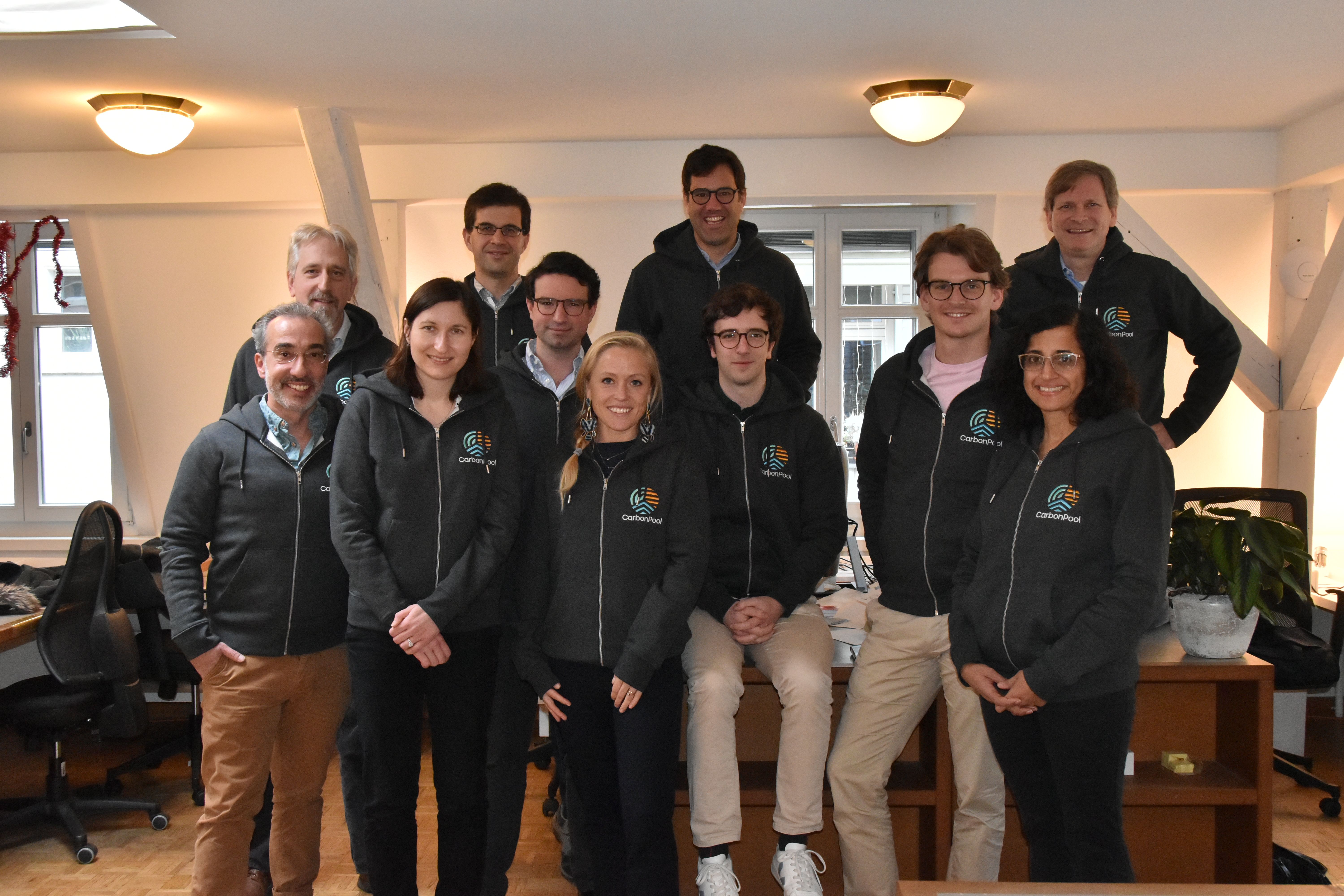Two (Swiss) Carbon Credit Start-Ups We’ll Be Watching In 2025
On 16th January, Randy Spock, Google’s carbon removal lead, will no doubt have breathed a sigh of relief: that day, the company’s latest carbon credit deals – both many months in the making – were announced. Over the next five years, the internet giant will buy 100,000 tons of biochar removal from Indian startup Varaha, and another 100,000 from San Francisco-based Charm.
We love to see it. And, this month, it got us thinking: which other carbon credit start-ups look set to have big years in 2025? Two in particular seem likely bets.
neustark
When the Dutch Central Bank reopened its Amsterdam headquarters, this month, after five years of renovation, Bloomberg noted “significant efforts were made to ensure the building is environmentally friendly.” Part of those efforts involved neustark, a Bern, Switzerland-based startup that helped to provide the project with “CO2-neutral concrete”.
Founded in 2019, the company:
-
Fits biogas plants – which turn organic matter, like food scraps and sewage sludge, into (combustible) biomethane – with CO2-capturing technology.
-
Once captured, that CO2 is liquified and transported to concrete recycling plants.
-
Those plants use tech that neustark’s co-CEO, Johannes Tiefenthaler, developed during his doctorate at ETH Zürich, to inject and permanently store the CO2 in demolished concrete (an estimated 1 billion tons of which becomes waste each year).
-
The ‘carbonated’ recycled concrete produced is then used in projects like the Dutch Central Bank’s (or, often, road-building projects).
neustark says that “even if the concrete in which the CO₂ is injected gets demolished again and again, the CO₂ will not be released into the atmosphere.”
Corporations and building owners can get in on the action by purchasing Gold Standard-approved carbon removal credits from the company – AXA Switzerland, UBS and Microsoft have all done so, so far.
Sophie Dres, the start-up’s chief marketing officer, told Innovation Zero that, to date, it’s helped to remove 3,160 tonnes of CO2 (net) – a figure that factors in both leakage and process emissions.
Its tech is currently embedded at 5 carbon capture sites and 28 carbon storage sites across Europe, including, as of last year, a storage site in Greenwich, London.
That number is only going to increase in 2025, with 8 new capture sites and 20 new storage sites currently under construction.
The company hopes its tech will help to remove 1 million tonnes of CO2 by 2030.
Watch this space!
Credit: neustark
CarbonPool
120km from neustark, in Zurich, another Swiss start-up is gearing up for a big year.
CarbonPool estimates that, going forward, “Nature-based risks alone could amount to a shortfall or reversal of 2-30% of carbon credits per year”.
Buyers increasingly want assurances that extreme weather events, and other risks, won’t derail their net zero plans. So, founded in 2022 by three insurance veterans, CarbonPool aims to become the world’s first insurance company with a carbon credit balance sheet.
It’ll offer a number of insurance products.
Let’s say you have a portfolio of afforestation credits:
-
While waiting for your credits to be retired, you could take out a bespoke ‘Carbon Shortfall’ policy, protecting you from risks like the trees not growing as expected. According to Coenraad Vrolijk, CarbonPool’s CEO, companies can expect to pay a single premium – 3-13% of the insured credits’ value – for up to 5 years of coverage.
-
After the credits have been retired, you could then take out ‘Carbon Reversal’ insurance, to insure yourself against future perils such as wildfires and landslides. Vrolijk says premiums for this type of coverage will depend on location – from 0.1% of the credits’ value to a “mid-single digit percentage” in areas like California. Premiums will be paid annually.
Other policies will be available and, importantly, all (successful) claims will be paid in-kind: policyholders will receive the same or similar high-quality credits from CarbonPool as the ones insured – not cash.
The startup announced a $12m seed funding round, last January. Right now, it’s offering assessments and pre-underwriting agreements to interested companies, while its insurance license application is underway in Switzerland – Vrolijk said, in an email, that approval is something CarbonPool expects to receive “by Q2 [2025],” though admitted that “since this is a global first, it is difficult to be precise on the timing.”
He also pointed out that Switzerland has a regulatory equivalency agreement with the UK, the EU, and Bermuda, meaning that, if/when a Swiss license is granted, the start-up will also be able to operate via branches in those jurisdictions. He noted that “carbon credits are not treated as a physical asset in any jurisdiction, and ownership rights can be freely moved around. As a consequence, any client with a legal entity in one of the jurisdictions that we can operate in and that has the contractual ownership rights of the carbon credits, can have their carbon credits insured by CarbonPool.”

(Some of) CarbonPool’s team. Credit: Coenraad Vrolijk.


